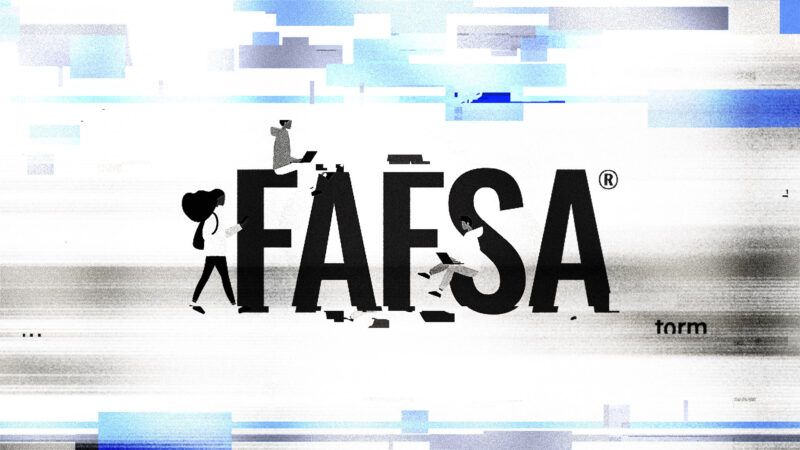Students With an Undocumented Parent Still Can't Fill Out the FAFSA Form
The updated FAFSA form has been marred with technical problems, leaving many students unable to complete the financial aid form entirely.

Since its "soft launch" in December, the new Free Application for Federal Student Aid (FAFSA) form has proved to be a logistical nightmare for millions of families who rely on the financial aid form to obtain federal grants and loans. While the streamlined form was intended to simplify the financial aid process, it has instead been plagued by glitches that have made it literally impossible for students whose parents don't have social security numbers to complete the form.
"It's just draining and exhausting," Aaron Dominguez, a high school senior whose immigrant mother doesn't have a Social Security Number told The Chronicle of Higher Education. "I know I have the right to ask for federal aid. But they've just made things so much harder for people like me. It's unfair. The government clearly just sees us like an afterthought."
FAFSA is the most popular tool for college students and families seeking financial aid. The form is necessary to obtain federal grants and loans, and most colleges use the form when deciding how much institutional aid to give students.
In 2020, Congress passed the Consolidated Appropriations Act, which required the Education Department to develop a new, simpler FAFSA form. The updated form, first made available on December 30, cut down the number of questions families had to answer by more than half and relies on data directly from the IRS to further streamline the process.
While the idea of simplifying the FAFSA form was a good one, the Education Department's execution of the legally mandated update has been marred by technical issues and delays. Months into the form's availability, the FAFSA website still lists more than a dozen active issues preventing students from filling out the form, though most list some kind of workaround.
However, students whose parents don't have a social security number—typically because their parent isn't a U.S. citizen or is undocumented—are still completely unable to complete the form. While the website promises a fix to the form sometime during the "first half of March," as of March 11th, the problem persists.
While students can technically submit the form if their parent doesn't have a social security number, the submitted form would be lacking key information colleges—and the government—need to estimate families' expected costs to send their child to college.
Despite technical issues, the Education Department has not extended the June 30 deadline for submitting the form.
Making a popular financial aid form more accessible for students and families is a no-brainer. But the disastrous rollout of the new FAFSA form shows just how badly things can go wrong when the government bungles something as important as college financial aid—and just how easy it is for vulnerable prospective students and their families to get left behind.


Show Comments (51)